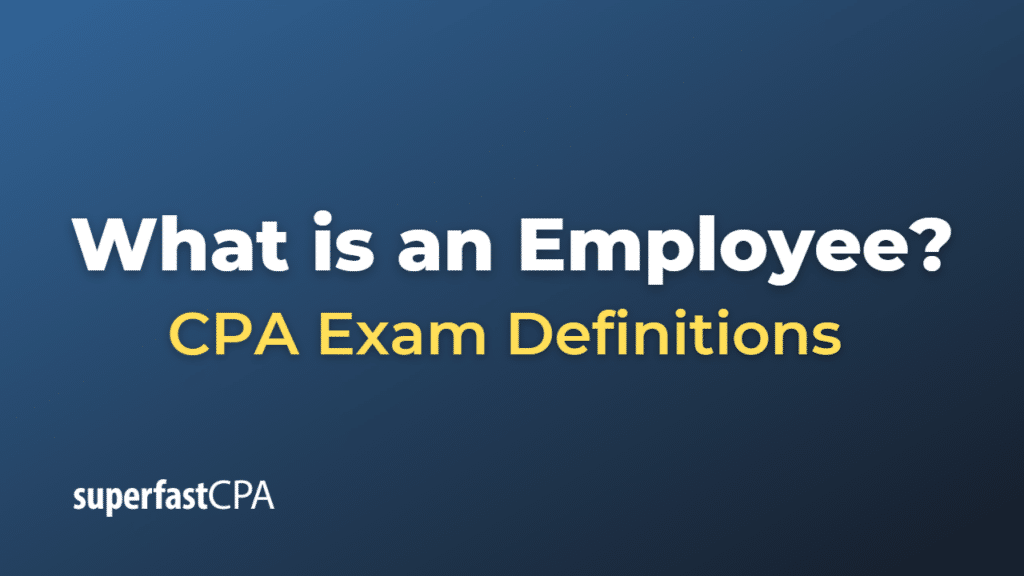Employee
An employee is an individual who is hired by an employer to perform specific tasks or duties in exchange for compensation, usually in the form of wages or salary. The relationship between an employee and an employer is typically formalized through a contract or an agreement, which stipulates the roles and responsibilities of the employee, the compensation they will receive, and the terms and conditions of their employment.
Employees are typically subject to the control of their employer. This means the employer not only dictates the outcomes of the work that the employee does but also has the power to dictate when, where, and how the work is done.
The classification of an individual as an employee is important because employees have certain rights and protections under labor laws and regulations. These may include the right to a minimum wage, overtime pay, workers’ compensation, unemployment insurance, and protection against workplace discrimination and harassment.
It’s also worth noting that not everyone who performs work for an organization is an employee. For example, independent contractors, freelancers, or consultants are not employees but are self-employed individuals who provide services based on a contract or agreement. The key difference is that these individuals have more control over how they complete their work and are not entitled to the same rights and protections as employees. They also typically handle their tax responsibilities differently from employees.
Example of an Employee
Let’s say a software company, TechSoft Inc., needs a software engineer to develop a new application. They hire John for the job and sign an employment contract. The contract specifies John’s role and responsibilities, the tasks he’s expected to perform, his working hours, and the compensation he’ll receive, which includes a salary and benefits like health insurance and vacation days.
As an employee, John is expected to work at the office or remotely (as per company policy) during specified business hours and follow the company’s rules and procedures. TechSoft Inc. has the right to control how John’s work is done, meaning they can define the standards of the project, the timeline for the application to be completed, and provide John with the necessary tools and resources to complete his tasks.
John’s status as an employee also gives him certain rights and protections under labor laws, such as the right to a safe working environment, the right to be paid for overtime work (subject to his employment contract and applicable labor laws), and protection against workplace discrimination.
In contrast, if TechSoft Inc. hired a freelance software developer for a specific project, that individual would operate as an independent contractor rather than an employee. They would have more control over how they complete their work and wouldn’t be entitled to the same benefits or legal protections as an employee. The company would also not withhold taxes from the contractor’s payments, and the contractor would be responsible for their own business expenses.













